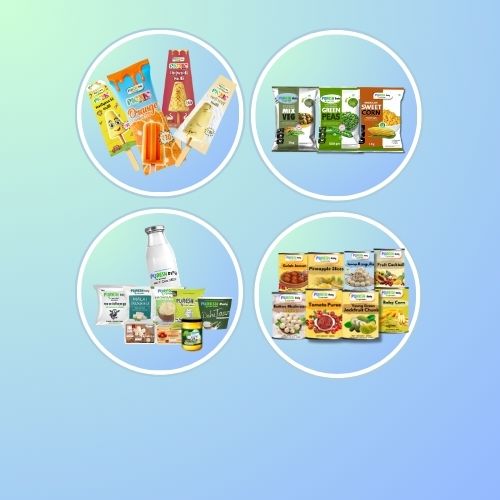Why Jharkhand Fruits and Vegetables Have Less Residue and are Best Suited for Exports from India.
India is one of the largest producers of fruits and vegetables in the world, and with rising global demand for clean, residue-free, and sustainable products, the focus has shifted to states that can meet international export standards.
1. Low Chemical Usage in Traditional Farming Practices
A major reason Jharkhand’s fruits and vegetables have lower chemical residue is due to its traditional and organic-leaning farming systems, especially in tribal and rural areas.
Key Factors:
- Many farmers in Jharkhand rely on indigenous knowledge and natural pest control methods instead of synthetic fertilizers and pesticide.
- Crop rotation, mixed cropping, and natural composting are commonly practiced, minimizing the buildup of harmful chemicals in the soil and crops.
2. Clean Soil and Water Sources
Jharkhand has relatively unpolluted soil and water resources, especially in its plateau and forested zones. The state’s less industrialized landscape compared to other agricultural regions like Punjab or Maharashtra means that:
- Groundwater contamination is minimal, reducing chemical uptake by crops.
- Soil health is better maintained, preserving microbial life and organic carbon essential for clean food production.
Such environmental purity is a major advantage when it comes to growing fruits and vegetables that are export-compliant.
3. Ideal Agro-Climatic Conditions for Horticulture
Jharkhand’s climatic zones support the cultivation of a wide variety of fruits and vegetables around the year.
Because of the naturally conducive growing conditions, farmers don’t need to rely heavily on growth stimulants, synthetic fertilizers, or pesticides. The climate does much of the work, producing robust, flavorful crops with minimal chemical intervention.
4. Government Support and Farmer Training
The Government of Jharkhand took the initiative along with central agencies like APEDA (Agricultural and Processed Food Products Export Development Authority), to support export-oriented agriculture through:
- Promotion of residue-free farming and organic certification
- Subsidies for cold chain infrastructure and pre-processing units
- Export facilitation centres for testing, certification, and market linkage
5. Access to Testing and Traceability
With improved laboratory testing infrastructure, products from Jharkhand can now be verified for pesticide residue, heavy metals, and microbial safety before export. Traceability systems are being set up to track produce from farm to port, offering:
- Transparency
- Quality assurance
- Export readiness
- This adds credibility and confidence for foreign buyers.
Conclusion:
Jharkhand is uniquely positioned to become a leading exporter of fruits and vegetables from India, especially in the premium and residue-free segments. Its combination of clean environment, traditional low-input farming, government support, and growing infrastructure offers a competitive edge in global markets that are increasingly health-conscious and regulation-driven.
As the world demands cleaner, safer, and more sustainable food, Jharkhand stands out as a state whose products not only meets but often exceeds export expectations—making it a rising star in India’s agricultural export landscape.






